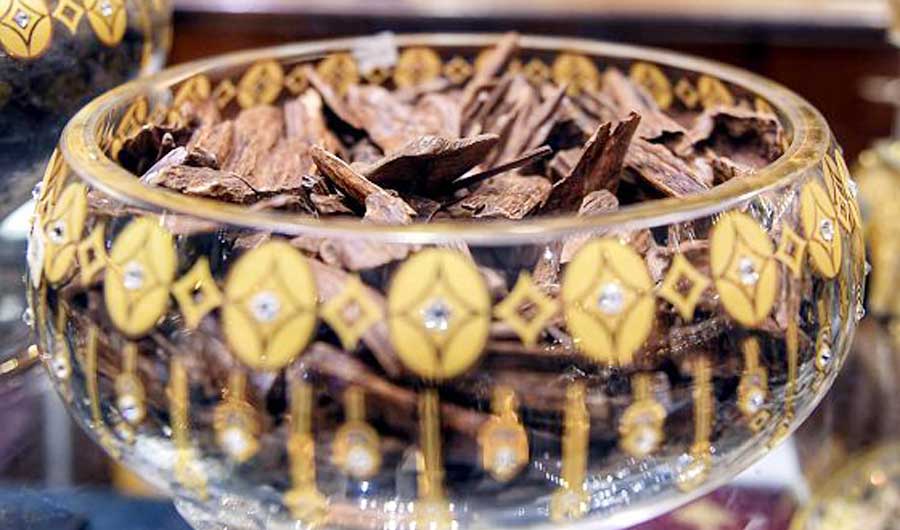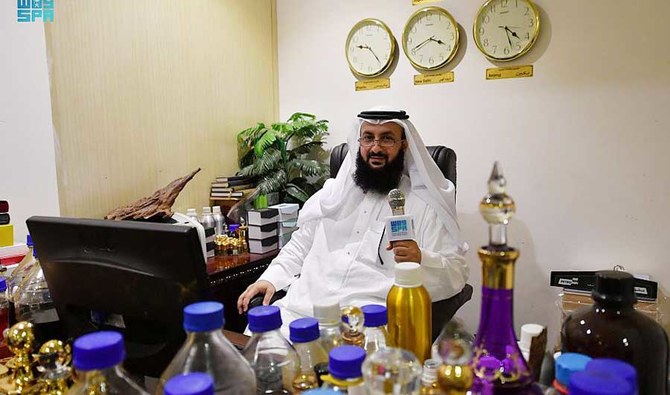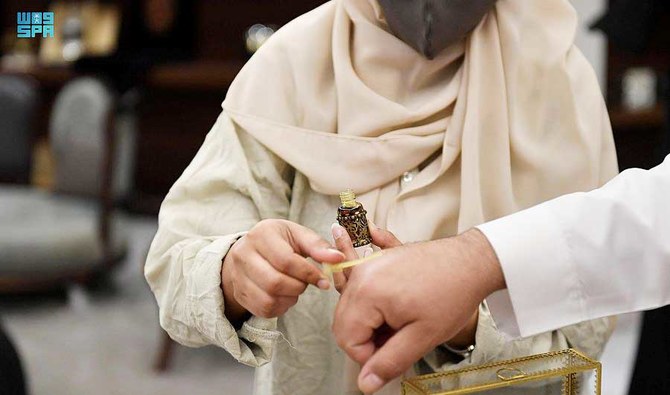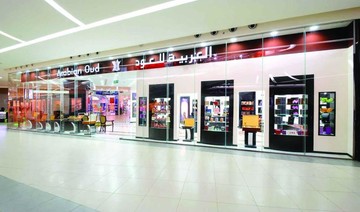ALKHOBAR: Saudis’ love of oud — one of the most expensive scents on the market today — may run deep but when it comes to price and quality, many struggle to tell the difference.
The result, experts warn, is that some buyers are vulnerable to production scams and fraudulent sales practices.
Oud’s warm woody scent comes from the heart of the agar tree found mostly in India, Cambodia, Indonesia and nearby countries, with the cost of 1 kg of resin rising from SR2,000 to SR6,000 ($500-1,600) or even higher.
The oil is extracted from trees up to 150 years old, and Gulf countries are among the biggest importers of the product.
Considered a rarity, the oil is commonly used on special occasions, such as Eid celebrations.
Despite its popularity, many find it difficult to judge the quality of oud, with experienced salesmen agreeing that the buyer’s trust in the seller remains a key ingredient in any purchase.
Mamdouh Al-Tamimi, an Aramco employee, enjoys agarwood, amber, musk and rose water oud bought from stores at Al-Maaqilia and Deira markets in Riyadh. Recently he has switched to a single store because he believed the salesman was honest.
“I trust him, so I go to the store three or four times a year,” he said.
FASTFACT
Oud’s warm woody scent comes from the heart of the agar tree found mostly in India, Cambodia, Indonesia and nearby countries, with the cost of 1 kg of resin rising from SR2,000 to SR6,000 ($500-1,600) or even higher.
Al-Tamimi said that he prefers liquid oud, agarwood oil, musk and amber with fragrant perfumes, especially during summer, and also enjoys good-quality oud incense.
Video posts shared on social media recently claim to show how some stores cheat customers by using lead to extend oud’s storage time and make its scent last longer.
Dr. Hamad Al-Kathiri, a consultant at Lamsat Bakhoor Company, which specializes in oud products, said that fraud is a growing problem in wood and liquid oud manufacture, with lead or dye frequently used to give the impression that agarwood is of high quality.

Lead or dye is frequently used to give the impression that agarwood is of high quality, while some stores add materials to dilute and compromise Oud’s quality. (SPA)
Some stores also add materials to dilute and compromise quality, he told Arab News.
“Of course, the common goal is greed as these stores want to make quick profits.”
Al-Kathiri said that in recent years online purchases of oud products have increased significantly, while customer preferences for types of oud have changed.
“One of the key reasons is the exorbitant price of the exquisite types of oud,” he said.
Trust in the seller is a major consideration for online shoppers, although many experts warn against buying online.
“The fact remains that it is difficult to know if an oud product is original because only experts know that and are able to protect customers from falling into fraudsters’ traps,” Al-Kathiri said.
He said that men are often interested in the quality of the oud, its name, size and scent, while women generally care only about the fragrance.
Al-Kathiri said that regardless of cost, buyers are advised to test no more than three scents in a single visit to an outlet.
Customers can ask for a sample to try at home in order to judge its quality, he added.
The scent of oud lingers for varying amounts of time depending on type and quality, with some types remaining on clothing for more than two days.
“I believe there is no such thing as original and non-original oud. It is all about quality. You can say this is a good quality oud and that is not,” he Al-Kathiri said.
Mahmoud Al-Falahi, manager of Malaysia-based Almoheet Oud Company, said that natural oud is produced from trees over 70 years old, without any improvements or enhancements.
However, some oud investors add lead or dye to add weight or to make the product “more dense,” he said, warning that it is extremely difficult to tell altered oud from the original.
The most common scam is increasing the weight of an oud product to boost its price, he said.
“Some stores would rather cheat to make quick profits than stay authentic.”
Al-Falahi advised buyers to test only two types of oud when they visit a store in order to judge the difference between the scents and to see if the fragrance lingers for the desired amount of time.






























